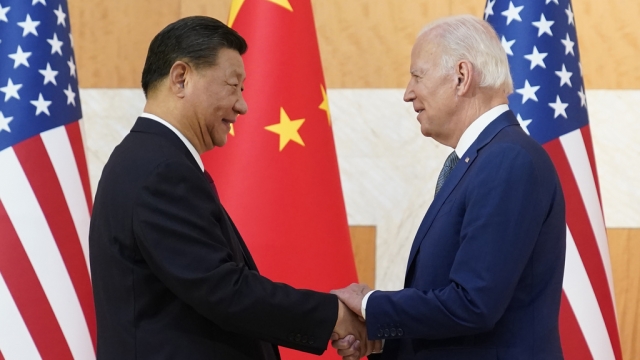For the second time since taking over the Oval Office, President Biden is meeting face-to-face with Chinese President Xi Jinping.
The White House says President Biden plans to address a range of issues, from human rights abuses and wrongful detentions to climate change and illegal drugs. But the top item on the agenda: resuming military communication.
"We have to make sure that senior military leaders and defense leaders are talking so that we don't allow a competitive relationship to develop into crisis," Defense Secretary Lloyd Austin said earlier this week.
SEE MORE: Lush, private Northern California estate is site for Xi-Biden meeting
"Whether in the Taiwan Strait or in the South China Sea — where Chinese and U.S. forces and the forces of U.S. allies are operating in close proximity to one another — there needs to be a way to communicate with each other," explained Patricia Kim, a foreign policy fellow at the Brookings Institution. "And so I think this meeting is really about starting to build those muscles of diplomatic engagement."
President Biden also wants to discuss efforts to combat fentanyl trafficking as China is one of the primary sources for the drug and the required chemicals to make it. And while international conflicts — like the war in Ukraine and the Israel-Hamas war — aren't a central focus for APEC, President Biden could lay the groundwork for China and the U.S. to work together on global issues.
SEE MORE: The evolution and future of the US-China relationship
"Can China put some pressure on Iran or Hamas to step back and see if we can find some way to re-stabilize things in the Middle East? So different sides, but this is what high-stakes diplomacy is all about," said Scott Kennedy, a senior adviser on Chinese business and economics for the Center for Strategic and International Studies.
The end goal is simply to improve U.S.-China relations, and the White House hopes to do that while striking a balance between healthy competition and bilateral cooperation.
Trending stories at Scrippsnews.com



